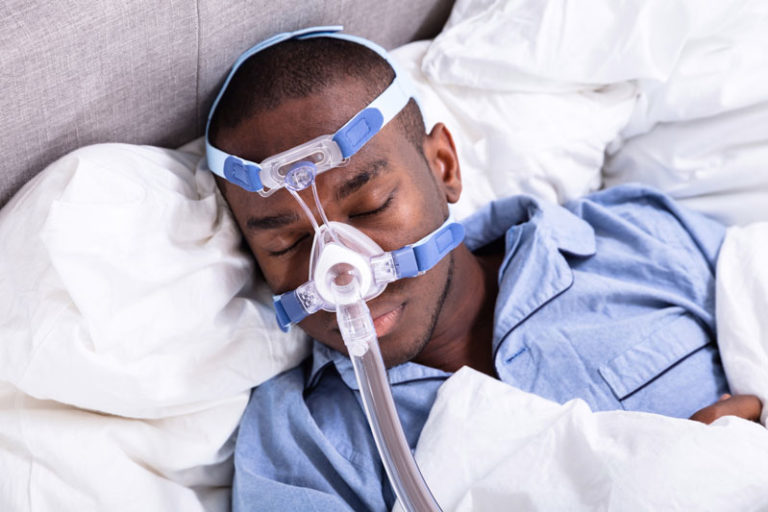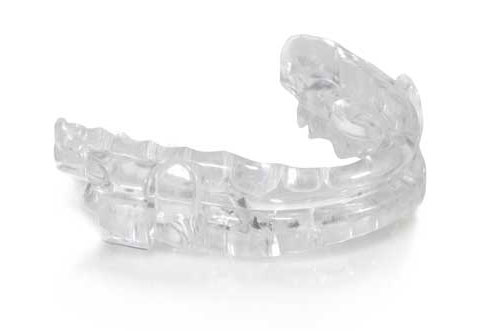The two most common treatment options are CPAP and Oral Appliance Therapy.
Continuous Positive Airway Pressure (CPAP)

CPAP is a commonly used treatment option for sleep apnea. A CPAP machine sends a steady flow of air from the machine through a tube to a mask worn over your nose and/or mouth to keep your airway open.
While CPAP is considered the gold standard of sleep apnea treatment, for many people the thought of having to use a mask every night keeps them from ever trying CPAP. Others try CPAP and are unable to tolerate it. Studies have found that approximately half of people who try CPAP are non-compliant (don’t consistently use it).
Then there are those who successfully use CPAP at home, but aren’t willing to travel with the machine, tubing and mask. The common complaints are; trying to make room in their suitcase, having to remove it when going through security at the airport, finding a nearby plug in their hotel room, or not having a power source at all – such as when they’re camping.
Oral Appliance Therapy
You have a choice of treatment options for sleep apnea.
Sleep physicians prescribe an oral appliance to treat mild or moderate sleep apnea. These custom fit devices are used at night while you sleep and feel similar to a mouth guard or retainer. They open your airway by gently moving your lower jaw and tongue forward. Medical insurance covers oral appliance treatment.
Some of the advantages of oral appliance therapy include:
- Comfortable, convenient and silent
- Reduces or even eliminates snoring
- Small and easy to travel with
- Do not require a power supply
- You are able to drink and talk while wearing the device
- May be able to help treat teeth clenching at night

